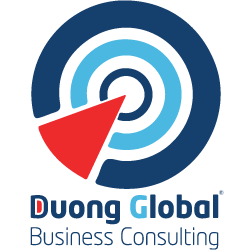When people think of Vietnam, there is still an image of the Vietnam War, poverty, and a “third-world country,” with a small GDP of roughly 250 billion USD and a population of 92 million people, but yet they spent $3.06 billion USD in real estate in the U.S. in 2016, which is almost 1% of Vietnam’s estimated GDP. Why and how did this happen?
Looking at two major trends: 1) education and 2) EB-5 investment visas will explain this phenomenon, among other factors we will not discuss.

First, the number of Vietnamese students studying in the U.S. has substantially increased in the last decade from 2007 – 2016 with 2016 showing over 21,000 students, positioned as 6th in the world studying in the U.S.. In 2007, the numbers were just above 6,000, that is a 300% increase in just one decade! With more students studying in the U.S., and the Vietnamese parents’ mindset of owning residential property for their children to live in while studying, thus increasing the residential property purchases by parents. After the students graduate, the parents hold onto the property for investment, dispose of it to start a business, or transfer to their children as wedding gifts. See chart below:

Secondly, the number of EB-5 investor visas have increased substantially in the last 5 years topping off at around 290 in 2016, making it 2nd in the world after China. Vietnamese investors who have $500,000 USD or $1,000,000 USD will have at least a net worth of $5 million USD, thus allowing disposable income to purchase real estate as an investment outside of the EB-5 program. Moreover, Vietnam is one of the fastest growing countries for ultra-high networth individuals – over $30 million USD in assets – thus adding to the ability to diversify their investments. See chart below:

Finally, the culmination of students studying and families immigrating, comes to the basic principles of doing business in Vietnam, which is through word of mouth marketing. Even if a family does not have a student studying in the U.S. or plan to immigrate to the U.S., they hear their friends talk about purchasing real estate as a great form of investment with stable, legitimate returns, and they too will invest jointly with or separately from their friends. In the end, the U.S. real estate market is still more stable than Vietnam and thus an attractive place to park some disposable income for long-term capital appreciation and short-term rental income.
At DG, we provide support education in the U. S. and real estate investments through EB-5 Visa program. Contact us to find out how we can help.





